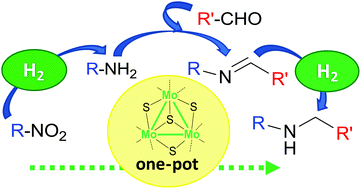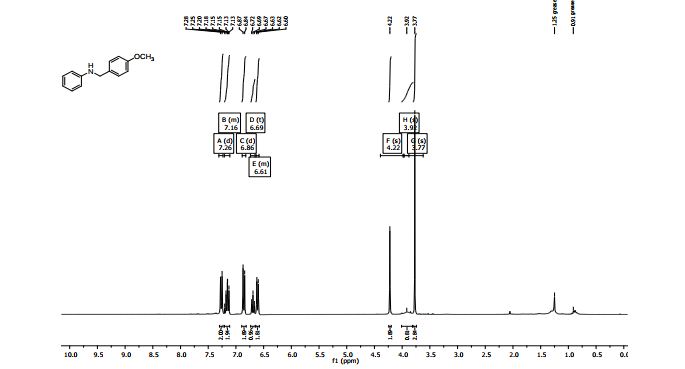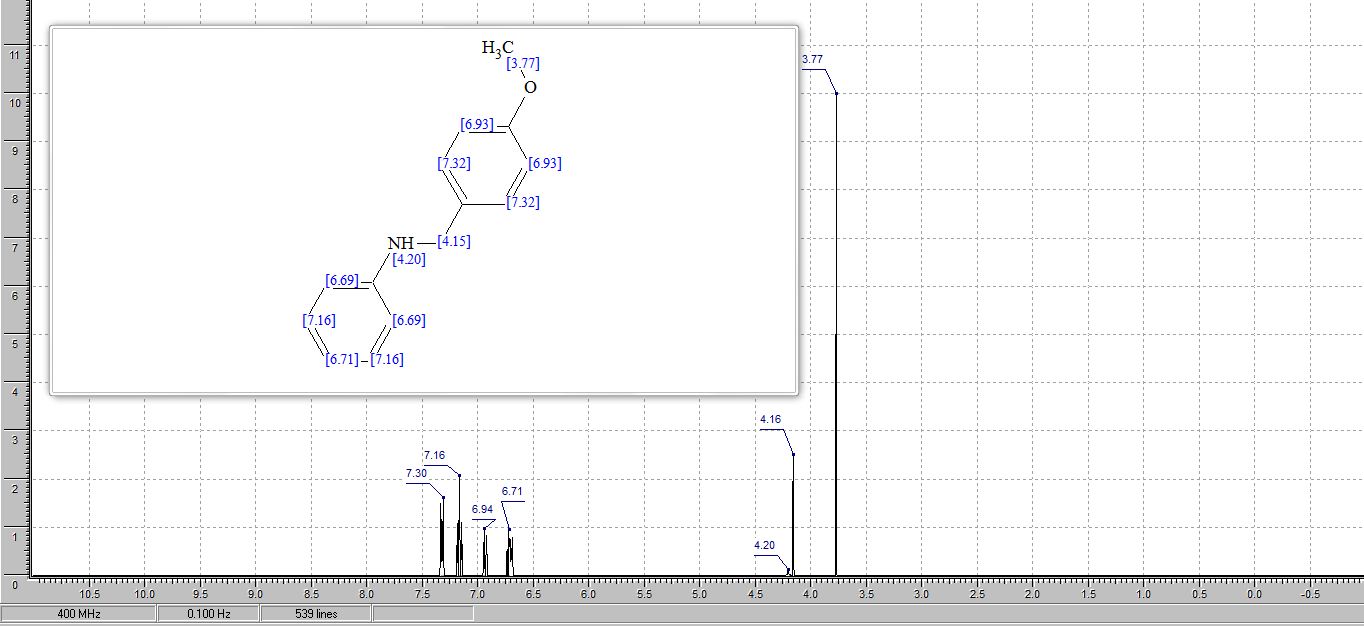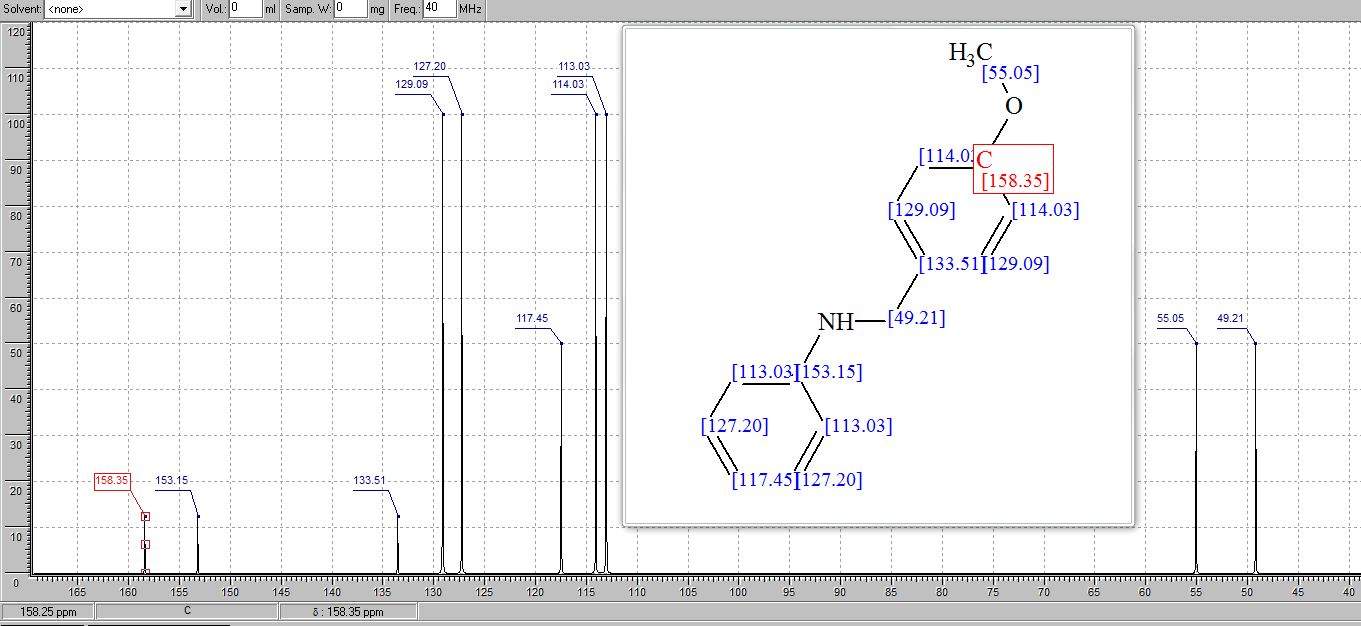
Selective reductive amination of aldehydes from nitro compounds catalyzed by molybdenum sulfide clusters
Green Chem., 2017, Advance Article
DOI: 10.1039/C7GC01603D, Communication
DOI: 10.1039/C7GC01603D, Communication
 Open Access
Open Access This article is licensed under a Creative Commons Attribution 3.0 Unported Licence.
This article is licensed under a Creative Commons Attribution 3.0 Unported Licence.
E. Pedrajas, I. Sorribes, K. Junge, M. Beller, R. Llusar
A one-pot selective synthesis of secondary amines catalyzed by a well-defined Mo3S4 cluster using hydrogen as a benign reductant
Selective reductive amination of aldehydes from nitro compounds catalyzed by molybdenum sulfide cluste
LLUSAR BARELLES, ROSA MARÍA
|
Reseña Personal
Rosa Llusar Barelles nace en Almenara (Castellón). En 1983 se licencia en Químicas por la Universidad de Valencia obteniendo el premio extraordinario de licenciatura. Su investigación doctoral se centra en la química de sulfuros de molibdeno y wolframio y se doctora por la Universidad de Valencia en 1987 y por la Universidad de Texas A&M (EE. UU) en 1988 bajo la dirección del profesor F. Albert Cotton. Después de trabajar durante tres años como técnico superior en la sección de investigación y desarrollo de una planta de producción de caprolactama en Castellón, realiza una estancia posdoctoral de un año (1992) con el profesor John D. Corbett en el Ames Laboratory (Iowa State University, EE. UU) investigando nuevas fases sólidas de haluros reducidos de tierras raras. En 1993 accede a una plaza de profesora interina en el Departamento de Ciencias Experimentales de la Universidad Jaume I de Castellón, en 1995 pasa a ser profesora Titular de Química Física y en 2009 Catedrática de Universidad. Desde entonces ha desarrollado su actividad docente en la licenciatura y ahora grado en Química dentro del ámbito de la química física (cuántica, espectroscopia, termodinámica, cinética, electroquímica etc.). Actualmente imparte la asignatura de “nanomateriales” en el máster en Química Aplicada y Farmacológica de la Universitat Jaume I. Ha sido profesora visitante en la Universidad Católica de Valparaíso (Chile), Universidad de Angers (Francia), la Universidad de Rennes (Francia) y en la Universidad Estadual Paulista (Brasil) en 2015.
La Prof. Llusar lidera desde su creación en 1998, el grupo de investigación de materiales moleculares de la Universitat Jaume I (http://www.grupo-rllusar.uji.es/). Su investigación está centrada en la química de clústeres metálicos con especial énfasis en sus propiedades fisicoquímicas de cara al desarrollo de nuevos materiales moleculares multifuncionales con aplicaciones de interés tecnológico en catálisis, electrónica molecular y medicina. Hasta la fecha, la Prof. Llusar ha dirigido diez tesis doctorales, seis de ellas con mención de doctorado europeo o internacional y una sexta realizada en cotutela y defendida en la Universidad Central de Venezuela. Es coautora de más de ciento cincuenta artículos en revistas científicas internacionales indexadas. El Instituto Nikolaev perteneciente a la Academia Rusa de las Ciencias ha reconocido su labor investigadora y de cooperación otorgándole en junio de 2012 el título de Doctora “Honoris Causa”. El Consejo Social de la Universitat Jaume I la galardonó en 2015 con el XVII Premio a la Trayectoria Investigadora.
En el ámbito de la gestión universitaria ha ejercido como vicerrectora de investigación de la Universitat Jaume I desde junio de 2006 durante cuatro años y como directora de los Servicios Centrales de Investigación Científica desde junio de 2010 hasta septiembre de 2014. En la actualidad es miembro del Claustro y del Consejo de Gobierno de la esta Universidad.
Links
Biodata
Elena Pedrajas Gual is a PhD student in the Molecular Materials Group with a Predoctoral fellowship granted by the University Jaume I in April 2013. Previously, she was licensed in Chemistry in the same university and she studied the Master of Applied and Pharmacologic Chemistry, in the specialty of Advanced Materials. She also was granted with another fellowship by the university and a collaboration fellowship by the Spanish Ministry of Education, which were both developed in the same research group.
She is a member of the Molecular Materials Group since 2012, and her line of research is focused in the synthesis and characterization of M3S4 and M3M'S4 clusters (M= Mo, W and M'= transition metal) functionalized with nitrogen donor ligands. Later, the reactivity of the new clusters is studied and also their catalytic activity in industrial processes of interest.
She is the author of an article published in the journal of catalysis ChemCatChem during the year 2015, and she has presented her results in both national and international conferences. She has participated in different research projects of Spanish Ministry, Valencian Community and University Jaume I. She did a temporary stay during two months in the "Leibniz-Institüt für Katalyse" in Rostock (Germany), under the supervision of Professor Matthias Beller.
Her teaching career will start during the academic year 2015-2016 with the course Physical Chemistry IV in the Bachelor's Degree in Chemistry, which consist of an introduction to the basic principles of spectroscopy
Abstract
Secondary amines are selectively obtained from low value starting materials using hydrogen and a non-noble metal-based catalyst. The reductive amination of aldehydes from nitroarenes or nitroalkanes is efficiently catalyzed by a well-defined diamino molybdenum sulfide cluster in a one-pot homogeneous reaction. The integrity of the molecular cluster catalyst is preserved along the process.
N-(4’-Methoxybenzyl)aniline3 :
1H NMR (300 MHz, CDCl3) δ 7.26 (d, J = 8.6 Hz, 2H), 7.21 – 7.11 (m, 2H), 6.86 (d, J = 8.7 Hz, 2H), 6.69 (t, J = 7.3 Hz, 1H), 6.64 – 6.58 (m, 1H), 4.22 (s, 2H), 3.92 (br s, 1H), 3.77 (s, 3H);
13C NMR (75 MHz, CDCl3) δ 158.96, 148.32, 131.53, 129.35, 128.90, 117.59, 114.13, 112.94, 55.39, 47.89;
MS (EI): m/z (rel. Int) 213.


1H AND 13C NMR PREDICTIONS


CLICK OM IMAGE FOR CLEAR VIEW
///////////////
No comments:
Post a Comment